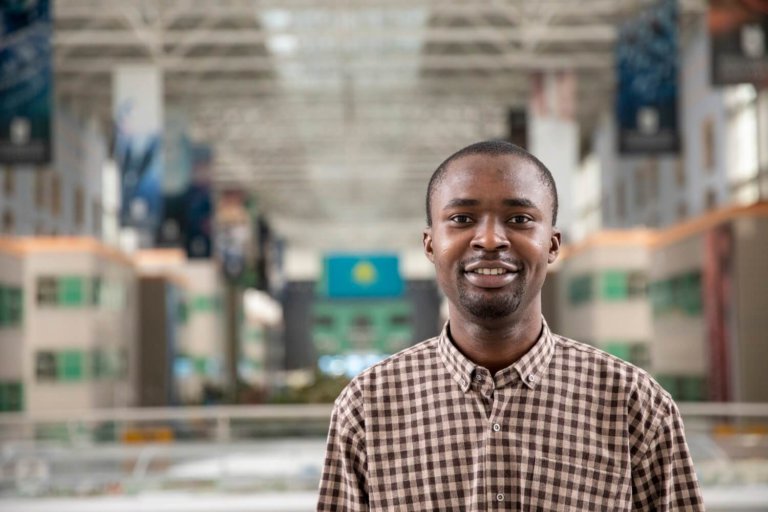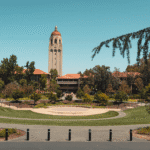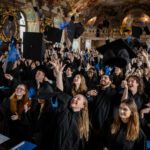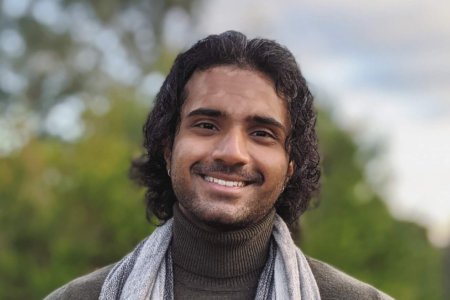
Kayode Olaifa is a 28-year-old humanist, a microbial enthusiast, and a good governance advocate from Nigeria with a Bachelor of Technology in Microbiology and an MSc in Microbiology and Biotechnology under his belt. He is now a STEM student at the Nazarbayev University (NU) in Kazakhstan with the aim of getting a PhD under his belt as well.
His thirst for more knowledge, desire to create something new, and optimism to make an impact in the global space are his motivations for getting another degree. Before arriving in Kazakhstan, he was working as a lecturer of Microbiology at a private polytechnic in Nigeria.
“The hospitality from the people is what I found most enjoyable. Everyone smiles at you, they all want to be your friend and always offer help,” Olaifa tells us. Below we ask him five questions on why Kazakhstan was his final destination on the pursuit of his STEM degree:
How have you developed your research interests as a STEM student, and what is the implication of this research?
I have been involved in quite a number of research projects, some of which have resulted in publication. On a general note, the desire to solve environmental or health-related problems has always been the drive for my research interests.
At the moment, I am currently developing new tools and repurposing existing techniques in electrochemistry for microbial biofilm study and antimicrobial susceptibility testing, with promising results so far.
 Kayode Olaifa, a STEM degree student, has since grown accustomed to the contrasting weather in Kazakhstan.The implication of this is that we would have a more rapid and sensitive technique for microbial diagnosis in our clinics, and hence save more lives.
Kayode Olaifa, a STEM degree student, has since grown accustomed to the contrasting weather in Kazakhstan.The implication of this is that we would have a more rapid and sensitive technique for microbial diagnosis in our clinics, and hence save more lives.
Describe how Nazarbayev University’s environment, facilities, and staff have supported your academic experience as a STEM student.
Firstly, I got to know about Nazarbayev University through my MSc co-advisor, Dr. Obinna Ajunwa at the University of Ibadan who has a collaborator at NU. I was amazed by what I read online — NU was established in 2010, and within a space of 10 years, it is already ranked top in Asia and competing favourably with Ivy League universities.
When I arrived at NU, I was amazed at the beautiful infrastructures, amazing reception, well-equipped facilities and laboratories, and great hospitality from both students and staff. As a STEM student, the serene environment, well-stocked and easily-accessible library, and the great internet service made my study an easy one.
The professors are amicable, approachable, and always willing to listen and help. The administrative staff are excellent service providers and very proactive because they will go to any length just to ensure your academic and social life runs smoothly. Also, my fellow students have been incredible, in particular the local ones.
Do you have any advice for international students looking to apply for a STEM degree?
When considering applications for STEM degrees, most international students focus more on the environment rather than the science. The assumption is that places like Canada, the UK, and the US are the only places where you can get good science education.
That is partly true, but what is truer is that there are other great places to study amazing science, and Kazakhstan is one of those places. The environment is lovely, the laboratories are top-notch, the professors are excellent, and the staff and students are incredible. In summary, international students should be more concerned about science rather than the country when applying for STEM degrees.
What challenges do you face living in Kazakhstan, and how did you overcome them?
As an international student coming from a country with a tropical climate, the extremely cold weather in Kazakhstan was a huge challenge. At one point, I even contemplated going back to Nigeria!
 Food is also something Kayode Olaifa has come to enjoy in Kazakhstan.I would say I have adapted to the weather and now find it soothing and enjoyable. One more thing that was a bit challenging, particularly in my first few months here, was the lack of Nigerian cuisines — now no longer a challenge as I am in love with horsemeat and other local dishes.
Food is also something Kayode Olaifa has come to enjoy in Kazakhstan.I would say I have adapted to the weather and now find it soothing and enjoyable. One more thing that was a bit challenging, particularly in my first few months here, was the lack of Nigerian cuisines — now no longer a challenge as I am in love with horsemeat and other local dishes.
What plans do you have for the future? Tell us a bit more.
I hope to maximise any opportunity that will come my way — be it post-doctoral study, teaching and research in a university, or a consultancy job in private industries or government institutes or agencies. Specifically, my goal is to become a professor in a world-class university where I would be able to teach and train students, and offer critical consultancy services to institutes and industries using novel technologies and my knowledge of STEM. I also intend to close the gap between academia and the industry through consistent partnership to help solve human and environmental problems.








